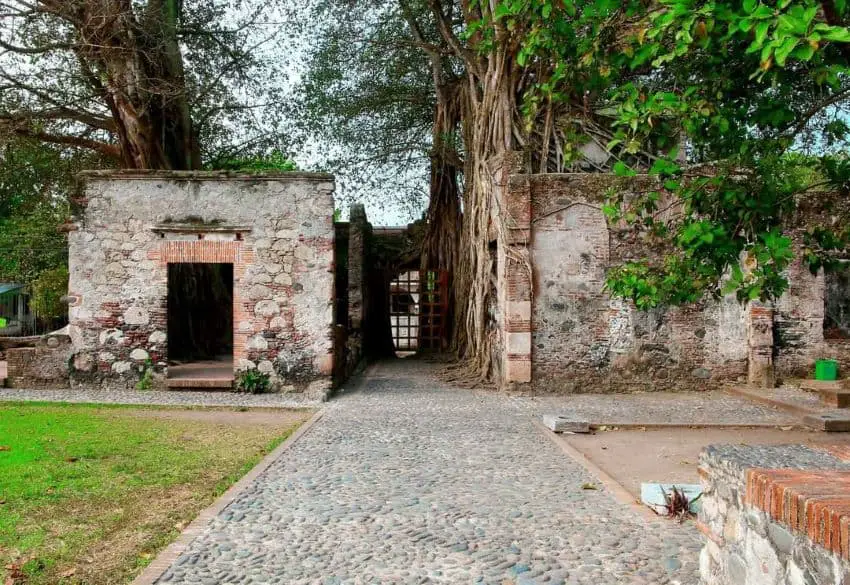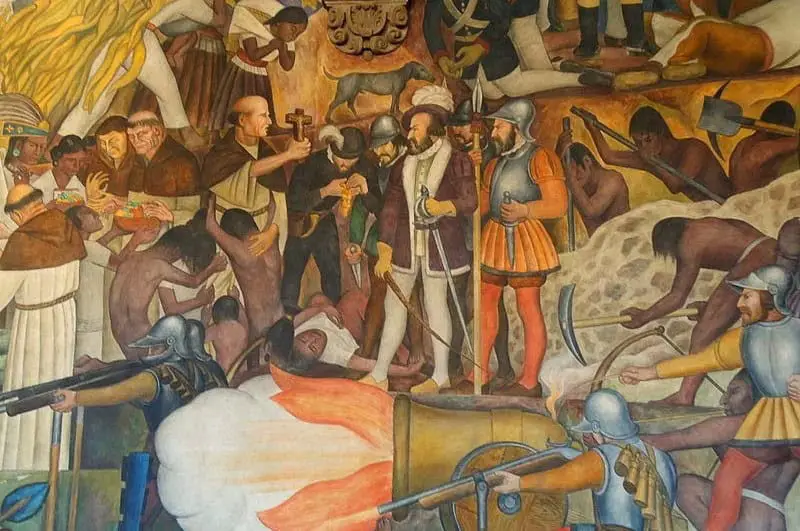What do Mexicans think of Cortés?

Here’s a lesson I’m trying to instill in my daughter: don’t take yourself (or anything) too seriously.
How successful have I been? Honestly, not very; she’s a serious, sensitive kid. Think of a Mexican Wednesday Addams, but one that smiles and plays occasionally. She’s also super cool and smart in ways that I will never be, and I know that some of the things that drive me a little nuts now will serve her well when she’s grown.

As for me, super intense people downright repel me. It’s okay to be passionate about things, but also, freaking relax. Everyone just seems so worked up lately, you know?
Norm MacDonald in his last show, Nothing Special, summed up all this newly intense energy well. To paraphrase: When I was young, people had, maybe, six opinions. And most of them were about food!
What they did to us
Back to my daughter. She’s at an age now (10) where she’s starting to decide, firmly, what she thinks is good and bad. When you’re a kid and don’t have a lot of experience in the world, it’s easy to be an absolutist. “This is good, and this is bad.”
Really, though, nuance seems to be in short supply in general, even for those far older than 10.
We bumped head into this last week when, on our way home from Veracruz, we decided to stop in La Antigua.


La Antigua is tiny little town on a river which happens to be home to one of the first “Casas de Cortés.” Its structure has been preserved, but as happens in many places in Veracruz, the trees have taken over. “This is ours now.”
It’s just as well. Who loves Cortés?
Not my kid, that’s who. She spent most of the time walking around the ruins talking about how terrible the conquest had been. Yes, I said. It was bad. But also, it wasn’t quite as simple as you’re imagining, and certainly not a battle between “all good” and “all evil.”
What do Mexicans think of Cortés?
She seemed to consider my boring lecture about how things went down for a few minutes. But then she launched into how she didn’t like Spaniards because of “what they did to us.”
Now, just hold it right there.
Humans are humans everywhere, and who happens to be the more powerful ones in any given point in history isn’t even all that important. It’s not who the powerful are as people; it’s the fact of being powerful. Being powerful makes humans feel and act a certain way.


Given our vast cultural differences, you’d think we’d all treat power vastly, vastly differently. But as anyone who’s studied history knows, that’s not the case. Our entitled behavior when we’ve got a leg up on others is embarrassingly universal.
Besides, modern-day Spaniards, goofy accents aside, are perfectly nice people. The only Mexican thing they want to conquer these days are the hearts of cute Mexicans.
Meaningless activism
This “We hate the Spaniards because of what they did to us,” of course, did not originate with my daughter. It’s a sentiment I hear quite a bit, and one I have little patience for. Admittedly, it draws out my defensiveness too, because I know that we gringos aren’t far behind in line for the chopping block.
And I do not want my daughter thinking that it’s cool to disown half of who she is. She was upset the day her friend from school had said a nuclear bomb should be dropped on the United States. I will not let her get close to agreeing with that statement.


How easy “activism” is when you don’t even have to do anything other than act mad! When I hear that particular complaint, I can’t help my usual quip. “If you hate them so much, then why don’t you boycott them? Learn some indigenous languages and then stop speaking Spanish. And stop worshiping the gods they brought you.”
That, of course, would require a lot of effort, and it’s not practical. Not the language part, anyway. I think this is exactly why we should learn to acknowledge our complicated history. Sometimes, you just have to sit uncomfortably with things.
Besides, there are plenty of problems to solve right now. We can use those passionate, worked up feelings for actually fixing things rather than wasting them on some vague sense of resentment. You know, problems we’ve currently got in front of us. Solutions that will benefit us, and our kids, and (hopefully) future generations.
So I don’t care how bored and fed up she gets. She’s getting a lot of lectures on nuance and the human condition.
Sarah DeVries is a writer and translator based in Xalapa, Veracruz. She can be reached through her website, sarahedevries.substack.com.
Source: Mexico News Daily

